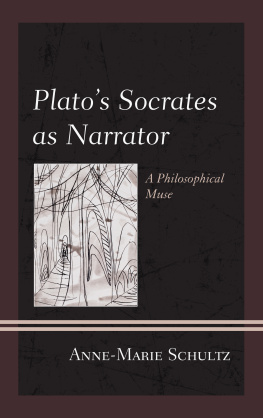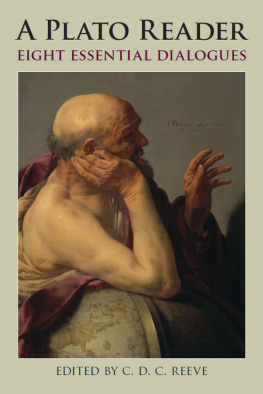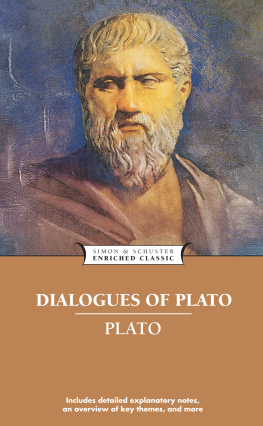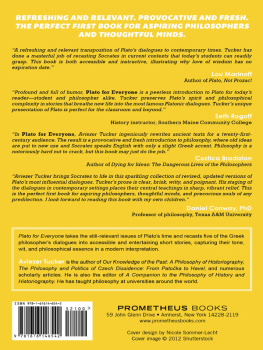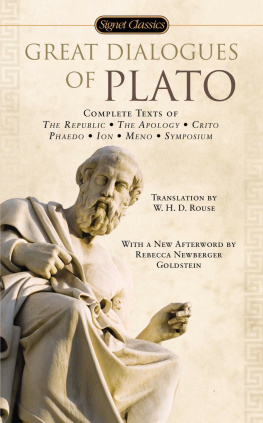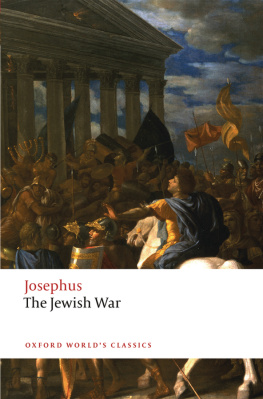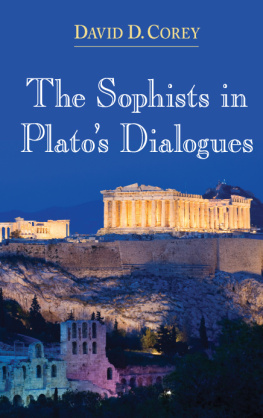Plato. - Meno and other dialogues: Oxford Worlds Classics S
Here you can read online Plato. - Meno and other dialogues: Oxford Worlds Classics S full text of the book (entire story) in english for free. Download pdf and epub, get meaning, cover and reviews about this ebook. year: 2005, publisher: OUP Oxford, genre: Science. Description of the work, (preface) as well as reviews are available. Best literature library LitArk.com created for fans of good reading and offers a wide selection of genres:
Romance novel
Science fiction
Adventure
Detective
Science
History
Home and family
Prose
Art
Politics
Computer
Non-fiction
Religion
Business
Children
Humor
Choose a favorite category and find really read worthwhile books. Enjoy immersion in the world of imagination, feel the emotions of the characters or learn something new for yourself, make an fascinating discovery.

- Book:Meno and other dialogues: Oxford Worlds Classics S
- Author:
- Publisher:OUP Oxford
- Genre:
- Year:2005
- Rating:3 / 5
- Favourites:Add to favourites
- Your mark:
- 60
- 1
- 2
- 3
- 4
- 5
Meno and other dialogues: Oxford Worlds Classics S: summary, description and annotation
We offer to read an annotation, description, summary or preface (depends on what the author of the book "Meno and other dialogues: Oxford Worlds Classics S" wrote himself). If you haven't found the necessary information about the book — write in the comments, we will try to find it.
Plato.: author's other books
Who wrote Meno and other dialogues: Oxford Worlds Classics S? Find out the surname, the name of the author of the book and a list of all author's works by series.
Meno and other dialogues: Oxford Worlds Classics S — read online for free the complete book (whole text) full work
Below is the text of the book, divided by pages. System saving the place of the last page read, allows you to conveniently read the book "Meno and other dialogues: Oxford Worlds Classics S" online for free, without having to search again every time where you left off. Put a bookmark, and you can go to the page where you finished reading at any time.
Font size:
Interval:
Bookmark:
OXFORD WORLDS CLASSICS
MENO AND OTHER DIALOGUES
PLATO (c.427347 BCE), Athenian philosopher-dramatist, has had a profound and lasting influence upon Western intellectual tradition. Born into a wealthy and prominent family, he grew up during the conflict between Athens and the Peloponnesian states which engulfed the Greek world from 431 to 404 BCE. Following its turbulent aftermath, he was deeply affected by the condemnation and execution of his revered master Socrates (469399) on charges of irreligion and corrupting the young. In revulsion from political activity, Plato devoted his life to the pursuit of philosophy and to composing memoirs of Socratic enquiry cast in dialogue form. He was strongly influenced by the Pythagorean thinkers of southern Italy and Sicily, which he is said to have visited when he was about 40. Some time after returning to Athens, he founded the Academy, an early ancestor of the modern university, devoted to philosophical and mathematical enquiry, and to the education of future rulers or philosopher-kings. The Academys most celebrated member was the young Aristotle (384322), who studied there for the last twenty years of Platos life. Their works mark the highest peak of philosophical achievement in antiquity, and both continue to rank among the greatest philosophers of all time.
Plato is the earliest Western philosopher from whose output complete works have been preserved. At least twenty-five of his dialogues are extant, ranging from fewer than twenty to more than three hundred pages in length. For their combination of dramatic realism, poetic beauty, intellectual vitality, and emotional power they are unique in Western literature.
ROBIN WATERFIELD has been a university lecturer (at Newcastle upon Tyne and St Andrews), and an editor and publisher. Currently, however, he is a self-employed writer, whose books range from philosophy and history to childrens fiction. He has previously translated, for Oxford Worlds Classics, Platos Republic, Symposium, Gorgias, and Phaedrus, Aristotles Physics, Herodotus Histories, Plutarchs Greek Lives and Roman Lives, Euripides Orestes and Other Plays and Heracles and Other Plays, Xenophons The Expedition of Cyrus, and The First Philosophers: The Presocratics and the Sophists.
OXFORD WORLDS CLASSICS
For over 100 years Oxford Worlds Classics have brought readers closer to the worlds great literature. Now with over 700 titlesfrom the 4,000-year-old myths of Mesopotamia to the twentieth centurys greatest novelsthe series makes available lesser-known as well as celebrated writing.
The pocket-sized hardbacks of the early years contained introductions by Virginia Woolf, T. S. Eliot, Graham Greene, and other literary figures which enriched the experience of reading. Today the series is recognized for its fine scholarship and reliability in texts that span world literature, drama and poetry, religion, philosophy and politics. Each edition includes perceptive commentary and essential background information to meet the changing needs of readers.
Refer to the to navigate through the material in this Oxford Worlds Classics ebook. Use the asterisks (*) throughout the text to access the hyperlinked Explanatory Notes.
OXFORD WORLDS CLASSICS

PLATO
Charmides, Laches, Lysis, Meno

Translated with an Introduction and Notes by
ROBIN WATERFIELD


Great Clarendon Street, Oxford ox2 6DP
Oxford University Press is a department of the University of Oxford.
It furthers the Universitys objective of excellence in research, scholarship,
and education by publishing worldwide in
Oxford New York
Auckland Cape Town Dar es Salaam Hong Kong Karachi
Kuala Lumpur Madrid Melbourne Mexico City Nairobi
New Delhi Shanghai Taipei Toronto
With offices in
Argentina Austria Brazil Chile Czech Republic France Greece
Guatemala Hungary Italy Japan South Korea Poland Portugal
Singapore Switzerland Thailand Turkey Ukraine Vietnam
Oxford is a registered trade mark of Oxford University Press
in the UK and in certain other countries
Published in the United States
by Oxford University Press Inc., New York
Robin Waterfield 2005
The moral rights of the author have been asserted
Database right Oxford University Press (maker)
First published as an Oxford Worlds Classics paperback 2005
All rights reserved. No part of this publication may be reproduced, stored in a retrieval system, or transmitted, in any form or by any means, without the prior permission in writing of Oxford University Press, or as expressly permitted by law, or under terms agreed with the appropriate reprographics rights organizations. Enquiries concerning reproduction outside the scope of the above should be sent to the Rights Department, Oxford University Press, at the address above
You must not circulate this book in any other binding or cover
and you must impose this same condition on any acquirer
British Library Cataloguing in Publication Data
Data available
Library of Congress Cataloging in Publication Data
Plato.
[Dialogues. English. Selections]
Meno and other dialogues/Plato; translated with an introduction
and notes by Robin Waterfield.
p. cm.(Oxford worlds classics)
Includes bibliographical references (p.) and index.
1. Philosophy. I. Waterfield, Robin, 1952 II. Title.
III. Oxford worlds classics (Oxford University Press)
B358. W38 2005 184dc22 2004030366
ISBN 0192804251 9780192804259
1
Typeset in Ehrhardt
by RefineCatch Ltd, Bungay, Suffolk
Printed in Great Britain by
Clays Ltd, St Ives plc., Suffolk
One plausible view of Socrates is that he did not really have a philosophy, in the sense of a body of doctrine, so much as a method of philosophical enquiry. This volume contains four Platonic dialogues. Three of them are usually taken to be canonical dialogues of searchthat is, dialogues in which Plato portrays Socrates using his method of enquirywhile the fourth, Meno, shows Socrates above all working through issues thrown up by his method of enquiry. And it is usually thought that the three dialogues of search (Charmides, Laches, and Lysis) the bulk of the dialogue raises fruitful questions which are designed to overcome difficulties raised by the search.
Socrates method of enquiry is also known as the elenchus. The word is a transliteration of a Greek word at whose heart is the idea of challenge or of testing. In Platos Apology of Socrateshis largely fictitious version of the defence speech Socrates delivered before the Athenians at his trial in 399 BCESocrates explains that, in response to the famous Delphic oracle which declared that there was no one wiser than Socrates, he began to question people, to see if they really knew what they thought they knew. He challenged them, then, and invariably found that they had no more than superficial knowledge, or beliefs inherited from somewhere but not fully thought out, and not part of a coherent system of beliefs; they did not have anything which had the stability and certainty one would expect from knowledge. And so elenchus in the sense of challenge very often took on the aggressive sense of refutation, and the dialogues of search tend to end in
Next pageFont size:
Interval:
Bookmark:
Similar books «Meno and other dialogues: Oxford Worlds Classics S»
Look at similar books to Meno and other dialogues: Oxford Worlds Classics S. We have selected literature similar in name and meaning in the hope of providing readers with more options to find new, interesting, not yet read works.
Discussion, reviews of the book Meno and other dialogues: Oxford Worlds Classics S and just readers' own opinions. Leave your comments, write what you think about the work, its meaning or the main characters. Specify what exactly you liked and what you didn't like, and why you think so.

